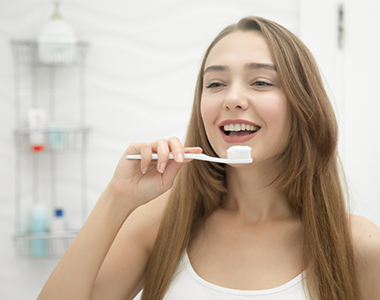
Aug 13, 2018

The Bacteria resides in your mouth in the form of plaque, which can cause cavities and gingivitis. Bacteria and plaque is a major reason for periodontal (gum) diseases. To keep your mouth clean and healthy you should maintain a good oral hygiene on a daily basis.
Plaque is a biofilm that builds up on your teeth, and it contains lots of bacteria. However, a lot of times even proper brushing does not reach the innermost corners of your mouth which leads to residual material containing bacteria in your mouth. These areas of plaque are can be made worse by certain food products, especially sugary foods or starches which is found in food items like bread, crackers, and cereal. Plaque also creates irritation in gums, making them red and , sensitive. All of this leads to gum disease, in which the gums pull away from the teeth and form pockets that fill with more bacteria and pus. If timely medical attention is not provided for gum disease, the bone around the teeth can be destroyed and the teeth might have to be removed.
The most effective way to get rid of plaque is by brushing and cleaning between your teeth regularly. Brushing effectively removes plaque from the surfaces of your teeth.
It is recommended to brush your teeth twice a day with a soft-bristled brush. The toothbrush should ideally fit your mouth and allow you to reach all areas of your mouth easily. Using an toothpaste which contains fluoride and antimicrobial agents will also help to protect your teeth from decay. Flossing is also highly recommended by dentists across globe in order to clean the surfaces between the teeth, which can prevent plaque buildup in these areas, and prevent gum disease.
The American Dental Association recommends certain techniques for healthy brushing and flossing
Brushing
Flossing
In addition to the daily brushing and flossing, a good mouthwash can increase the cleanliness of your mouth. Antimicrobial Mouth rinses with antimicrobial agents reduce bacteria and plaque activity, which cause gingivitis and gum diseases. Fluoride mouth rinses also helps to reduce and prevent tooth decay.
Make sure you consult with your dentist before using a mouthwash. Fluoride rinses are not recommended for children younger than 6 years, as they may swallow them. Always remember to check the manufacturer’s label on the bottle for precautions and age recommendations.

Press ENTER to confirm the appointment